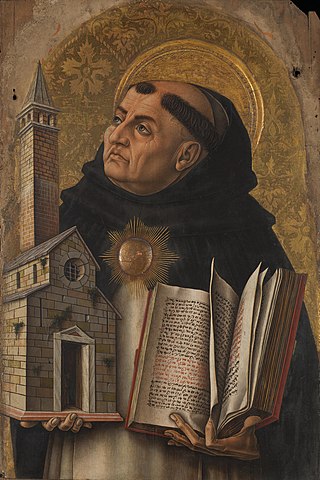Related Research Articles
An irrelevant conclusion, also known as ignoratio elenchi or missing the point, is the informal fallacy of presenting an argument whose conclusion fails to address the issue in question. It falls into the broad class of relevance fallacies.

Argument from ignorance, also known as appeal to ignorance, is a fallacy in informal logic. It asserts that a proposition is true because it has not yet been proven false or a proposition is false because it has not yet been proven true. This represents a type of false dichotomy in that it excludes the possibility that there may have been an insufficient investigation to prove that the proposition is either true or false. It also does not allow for the possibility that the answer is unknowable, only knowable in the future, or neither completely true nor completely false. In debates, appealing to ignorance is sometimes an attempt to shift the burden of proof. The term was likely coined by philosopher John Locke in the late 17th century.

Omnipotence is the quality of having unlimited power. Monotheistic religions generally attribute omnipotence only to the deity of their faith. In the monotheistic religious philosophy of Abrahamic religions, omnipotence is often listed as one of God's characteristics, along with omniscience, omnipresence, and omnibenevolence. The presence of all these properties in a single entity has given rise to considerable theological debate, prominently including the problem of evil, the question of why such a deity would permit the existence of evil. It is accepted in philosophy and science that omnipotence can never be effectively understood.

A straw man fallacy is the informal fallacy of refuting an argument different from the one actually under discussion, while not recognizing or acknowledging the distinction. One who engages in this fallacy is said to be "attacking a straw man".

A fallacy is the use of invalid or otherwise faulty reasoning in the construction of an argument that may appear to be well-reasoned if unnoticed. The term was introduced in the Western intellectual tradition by the Aristotelian De Sophisticis Elenchis.
Special pleading is an informal fallacy wherein one cites something as an exception to a general or universal principle, without justifying the special exception. It is the application of a double standard.
The argument from free will, also called the paradox of free will or theological fatalism, contends that omniscience and free will are incompatible and that any conception of God that incorporates both properties is therefore inconceivable. See the various controversies over claims of God's omniscience, in particular the critical notion of foreknowledge. These arguments are deeply concerned with the implications of predestination.

Sloth is one of the seven deadly sins in Catholic teachings. It is the most difficult sin to define and credit as sin, since it refers to an assortment of ideas, dating from antiquity and including mental, spiritual, pathological, and conditional states. One definition is a habitual disinclination to exertion, or laziness. Views concerning the virtue of work to support society and further God's plan suggest that through inactivity, one invites sin: "For Satan finds some mischief still for idle hands to do.".

Must is freshly crushed fruit juice that contains the skins, seeds, and stems of the fruit. The solid portion of the must is called pomace and typically makes up 7–23% of the total weight of the must. Making must is the first step in winemaking. Because of its high glucose content, typically between 10 and 15%, must is also used as a sweetener in a variety of cuisines. Unlike commercially sold grape juice, which is filtered and pasteurized, must is thick with particulate matter, opaque, and comes in various shades of brown and purple.
A solemn vow is a certain vow taken by an individual during or after novitiate in a Catholic religious institute. It is solemn insofar as the Church recognizes it as such.

The Summa Theologiae or Summa Theologica, often referred to simply as the Summa, is the best-known work of Thomas Aquinas (1225–1274), a scholastic theologian and Doctor of the Church. It is a compendium of all of the main theological teachings of the Catholic Church, intended to be an instructional guide for theology students, including seminarians and the literate laity. Presenting the reasoning for almost all points of Christian theology in the West, topics of the Summa follow the following cycle: God; Creation, Man; Man's purpose; Christ; the Sacraments; and back to God.
Summa and its diminutive summula was a medieval didactics literary genre written in Latin, born during the 12th century, and popularized in 13th century Europe. In its simplest sense, they might be considered texts that 'sum up' knowledge in a field, such as the compendiums of theology, philosophy and canon law. Their function during the Middle Ages was largely as manuals or handbooks of necessary knowledge used by individuals who would not advance their studies any further.
In logic and philosophy, a formal fallacy, deductive fallacy, logical fallacy or non sequitur is a pattern of reasoning rendered invalid by a flaw in its logical structure that can neatly be expressed in a standard logic system, for example propositional logic. It is defined as a deductive argument that is invalid. The argument itself could have true premises, but still have a false conclusion. Thus, a formal fallacy is a fallacy where deduction goes wrong, and is no longer a logical process. This may not affect the truth of the conclusion, since validity and truth are separate in formal logic.

The Quinque viæ are five logical arguments for the existence of God summarized by the 13th-century Catholic philosopher and theologian Thomas Aquinas in his book Summa Theologica. They are:
- the argument from "first mover";
- the argument from universal causation;
- the argument from contingency;
- the argument from degree;
- the argument from final cause or ends.
Vincible ignorance is, in Catholic moral theology, ignorance that a person could remove by applying reasonable diligence in the given set of circumstances. It contrasts with invincible ignorance, which a person is either entirely incapable of removing, or could only do so by supererogatory efforts.

Thomas Aquinas was an Italian Dominican friar and priest, an influential philosopher and theologian, and a jurist in the tradition of scholasticism from the county of Aquino in the Kingdom of Sicily.

The Latin Church is the largest autonomous particular church within the Catholic Church, whose members constitute the vast majority of the 1.3 billion Catholics. The Latin Church is one of 24 churches sui iuris in full communion with the pope; the other 23 are collectively referred to as the Eastern Catholic Churches, and have approximately 18 million members combined.

Treatise on Law is Thomas Aquinas' major work of legal philosophy. It forms questions 90–108 of the Prima Secundæ of the Summa Theologiæ, Aquinas' masterwork of Scholastic philosophical theology. Along with Aristotelianism, it forms the basis for the legal theory of Catholic canon law.
Quanto conficiamur moerore is an encyclical of Pope Pius IX, published on August 10, 1863, addressed to the College of Cardinals and Italian Episcopate.
References
- ↑ "Invincible Ignorance" by Bruce Thompson, Department of Humanities (Philosophy), Cuyamaca College
- ↑ "Argument by Pigheadedness". www.logicallyfallacious.com. Retrieved 2021-11-19.
- ↑ Aquinas, Summa Theologica Ia IIae q.76 a.2 Archived 2012-03-20 at the Wayback Machine
- ↑ Fearnside, W. Ward and William B. Holther, Fallacy: The Counterfeit of Argument, 1959. ISBN 978-0-13-301770-0.